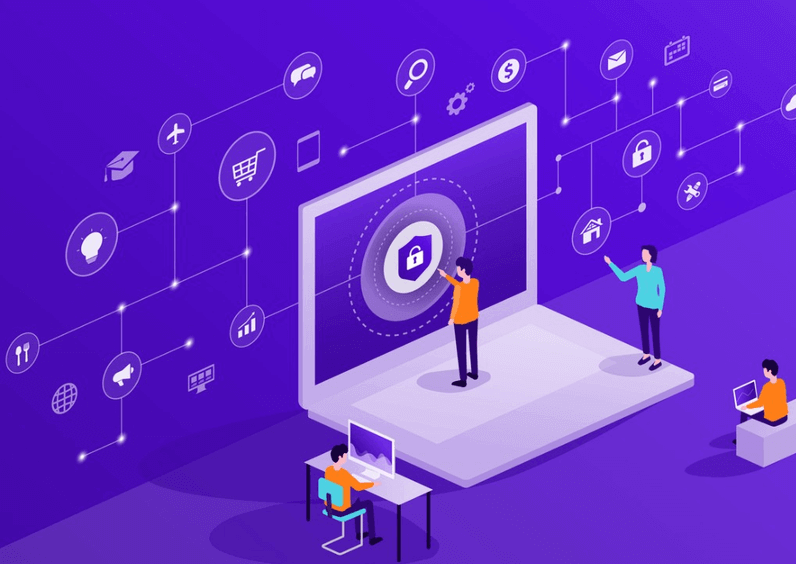What is the Relation Between DevOps and Cloud?
What is the Relation Between DevOps and Cloud?
If you have been making online payments or booked your vacation using a mobile app, then you have become a customer of the company that has embraced digital transformation. According to different survey data collected by Forbes, digital transformation is the future of customer experience, and two-thirds of global CEOs will start prioritizing digital strategies to improve end-user experience.
Going by the hype, digital transformation has become a need for businesses in almost every industrial sector. A TechRepublic article reports that nearly 80 percent of companies surveyed by AppDirect is in the process of digital transformation. One of the common digital transformation challenges faced by companies is the company culture, specifically those that are risk-averse. DevOps and cloud computing are two ways that can streamline the process of achieving digital transformation.
Also Read – How to Protect Your Data & Information with Cloud Security?
DevOps and Cloud Computing – What are they?
Individuals who are into software development know what the problems with the traditional software development approach called the Waterfall model were. To address its issues, the Agile method of software development was introduced. While the Agile method addressed most of the issues between client and developer, its drawback was that the development team and operations team didn’t work together. This is where DevOps came in.
DevOps evolved from the Agile method of software development, and it mainly addresses the gap between Developers (Dev) and Operations (Ops). DevOps allows developers and operations to work seamlessly and integrate the entire process to make it more efficient. After the developers build an application, the operations team monitors it and provides relevant feedback on how the application works on the production systems. The developers are thus able to make adjustments to the code accordingly and resolve the issues quickly.
Now coming to cloud computing, any company that offers some services or products, require certain tools and software to work on. For instance, if a company wishes to host a website, it would require resources like servers, databases, tools, as well as technical expertise to monitor them. All this called for huge investment, and this is what became the driving factor for the introduction of cloud computing.
Cloud computing makes use of the remote servers hosted on the internet instead of local servers to store, manage, and process data. Companies that offer these services are called cloud providers; popular ones include Amazon Web Services (AWS), Microsoft Azure, and Google Cloud. They allow companies to handle applications and services on a global network.
How Do DevOps and Cloud Relate?
Looking at the brief description of both these terms, one will surely wonder that if DevOps talks about the process and cloud talks about the tools and technology, How do they relate?
Well, people familiar with the software development process and cloud technologies agree that cloud complements DevOps in many ways. Let us see how!
DevOps processes include continuous integration and continuous deployment, and most of the cloud service providers support it. The developers and operations thus benefit from centralized governance and control, including seamless DevOps automation.
Developers and operations can work together using the cloud as a shared language. It enhances the understanding of the operations team towards the coding aspect and that of the development team towards the infrastructure aspect. Thus, both teams can have better collaboration to achieve the necessary digital transformation.
Cloud providers like AWS allow the creation of self-service methods to provision infrastructure. Developers thus get to own more components easily, and they can create development environments in less time. It also allows developers to get quick feedback regarding their code and try out new things. Without this feature, developers would otherwise depend upon the IT operations to provision resources.
Cloud technologies enable the creation of repeatable processes and automation of the process of designing, managing, and provisioning through code. Developers can hence build security controls from the start of the process and minimize human error to a great extent.
Companies often face scalability issues resulting in increased cost of infrastructure. Cloud computing enables companies to increase capacity easily without higher costs; and when we take DevOps into the picture, applications have scalability as and when they are developed.
Overall, the streamlining of the entire process and easy access to the development environments results in quicker time to market of the products or services. Thus, cloud and DevOps together assist companies in achieving their transformation goals.
Conclusion –
After analyzing how cloud computing and DevOps together can help companies drive digital transformation, It will be interesting to see how organizations can leverage these ways towards achieving their business goals. If we consider the scope of cloud computing and DevOps in the future, a career in both of these domains will be rewarding. If news reports are anything to go by, DevOps skills are more in demand than any other IT-related field and two-thirds of the surveyed people are actively seeking a DevOps approach.
To top it off, the Stack Overflow Developer Survey 2019 also stated that DevOps specialists are among the highest-paid developers and are most satisfied with their jobs. This would definitely encourage you to explore your career opportunities as a DevOps Engineer.
To gain hands-on experience with the DevOps approach and the various tools used, you can take up a DevOps course. Taking the course from a reputed training provider will help you learn from subject matter experts and become well-versed in DevOps methodologies, continuous integration and deployment tools, containerization, and much more. If you still haven’t thought about a career in DevOps, now is the time to get started.
Also Read – A Step-by-Step Guide to Snowflake Cloud Data Platform





